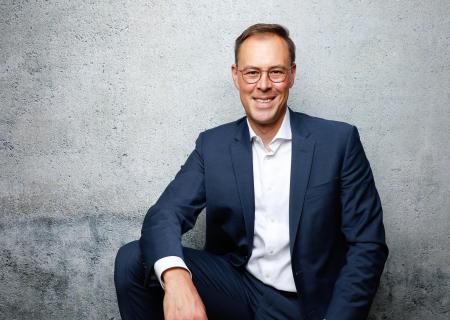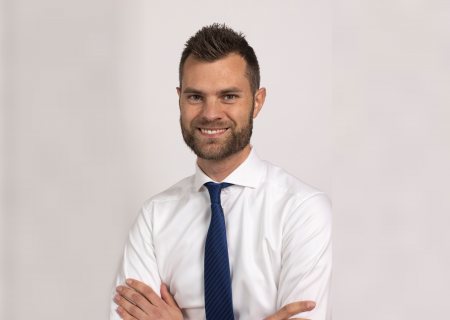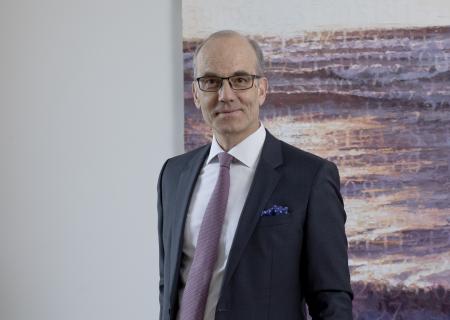Family Affairs
Member Profile, Martin Lemke
Martin Lemke, Managing Director of family office investor AM Alpha, recently spoke to IQ magazine about how his organisation works and his reasons for getting involved with INREV, as Chair of the Investor Advisory Council (IAC) and a member of the Management Board.
AM Alpha Kapitalverwaltungsgesellschaft (KVG) is a German family office that focuses exclusively on real estate investment. ‘We are quite an unusual animal, at least in Europe, as unlike many family offices, those families investing through AM Alpha have already decided to allocate to real estate,’ Lemke explains.
‘Our approach is relatively entrepreneurial, in the sense that we are willing to explore a wide range of options to deliver extra return to our investors. This means using a variety of routes to access real estate across direct ownership, club deals and commingled funds, though the latter are perhaps less important than in the past. We have more freedom than many liability-driven institutional investors, something that is particularly helpful in the latter stages of the market cycle.'
Lemke knows the institutional world very well, having previously been Managing Director at Patrizia GewerbeInvest KVG, the commercial real estate unit of the German management house, where he worked for some 15 years before moving to AM Alpha in 2013.
‘This is an exciting time for family office investors,’ he continues, ‘as we have now been through a number of years of strong economic growth globally, which has added to the stock of individual wealth, particularly via IPOs and company disposals. In 2016-2017 alone, personal wealth grew by 10% in Europe and 15% in Asia. As we mainly
deploy European capital into Europe and the Asian-Pacific Region, this development has been particularly good for us, as real estate has always been a popular destination for family investment. Nowadays, the asset class is making up as much as 20% of their overall allocations.’
‘We offer targeted investment programmes to our investors. These are for example dedicated to European or Asian-Pacific real estate opportunities. The assets are overwhelmingly commercial property. Offices account for the largest share but we diversify with logistics and light industrial properties. Because Europe and Asia are our main strongholds, we tend to invest there so that we can leverage our connections to make club deals, for example. Up to now we don’t have any fixed sector or country allocations, but we are very disciplined about continually analysing different markets, so that we can time our investments accurately. INREV’s market data is one of the sources that we use for monitoring our investments and we also contribute our own data to the fund indices.'
'Cyber crime and cyber-terrorism are particular worries for family offices'
Family offices have something of a reputation for secrecy, so it could be seen as a surprise that AM Alpha have become active INREV members. ‘Not really,’ says Lemke. ‘For one thing, the internet means that it is much harder for wealthy families to hide their financial activities if they wanted to, but in any case the younger generation of these families tend to have a more open mind-set and are generally more willing to share information. And as an organisation investing globally, we are keen to see greater professionalism across the real estate sector as a whole. INREV’s standards, which are becoming increasingly global in their scope, have a key role to play in this area. At the same time, INREV’s events are very helpful in keeping us abreast of the latest developments in the sector.’
‘Speaking from our perspective, family offices share many concerns in common with other investors. Geopolitical risks have moved right up the agenda over the last few years and look set to remain there, while regulation is having a growing impact on the cost and time involved in doing business.’
'Cyber-crime and cyber-terrorism are particular worries for family offices, as the wealthy individuals they represent often consider themselves likely to be targets, but such IT-related issues affect all financial institutions and organisations to some extent. These are all areas where INREV's committees and research have an important role to play in highlighting the questions that should matter to investors and assessing the levels of risk involved.'
'As an organisation investing globally, we are keen to see greater professionalism across the real estate sector as a whole'
Lemke’s commitment to INREV is such that he now chairs its Investor Advisory Council, which advises INREV’s Chief Executive on investors’ needs, in the same way that the Fund Management Advisory Council does for managers. ‘The IAC, which meets three or four times a year, is structured to reflect the different types of investors that belong to INREV in terms of their domicile and size,’ he stresses. ‘Its members also have a seat on the INREV Management Board, ensuring that their views are heard at the highest level in the organisation.'
‘I see the Vision Project – digesting members’ views on how we should move forward in the next stage of INREV’s journey, based on the in-depth interviews held earlier this year – as being the most important item on the IAC agenda at present. It’s critical that INREV builds on the achievements of the past 15 years and adapts to the
changes that have taken place in non-listed real estate over that period. That means taking account of the motivations of newer entrants to the sector – of which family offices are just one.'







